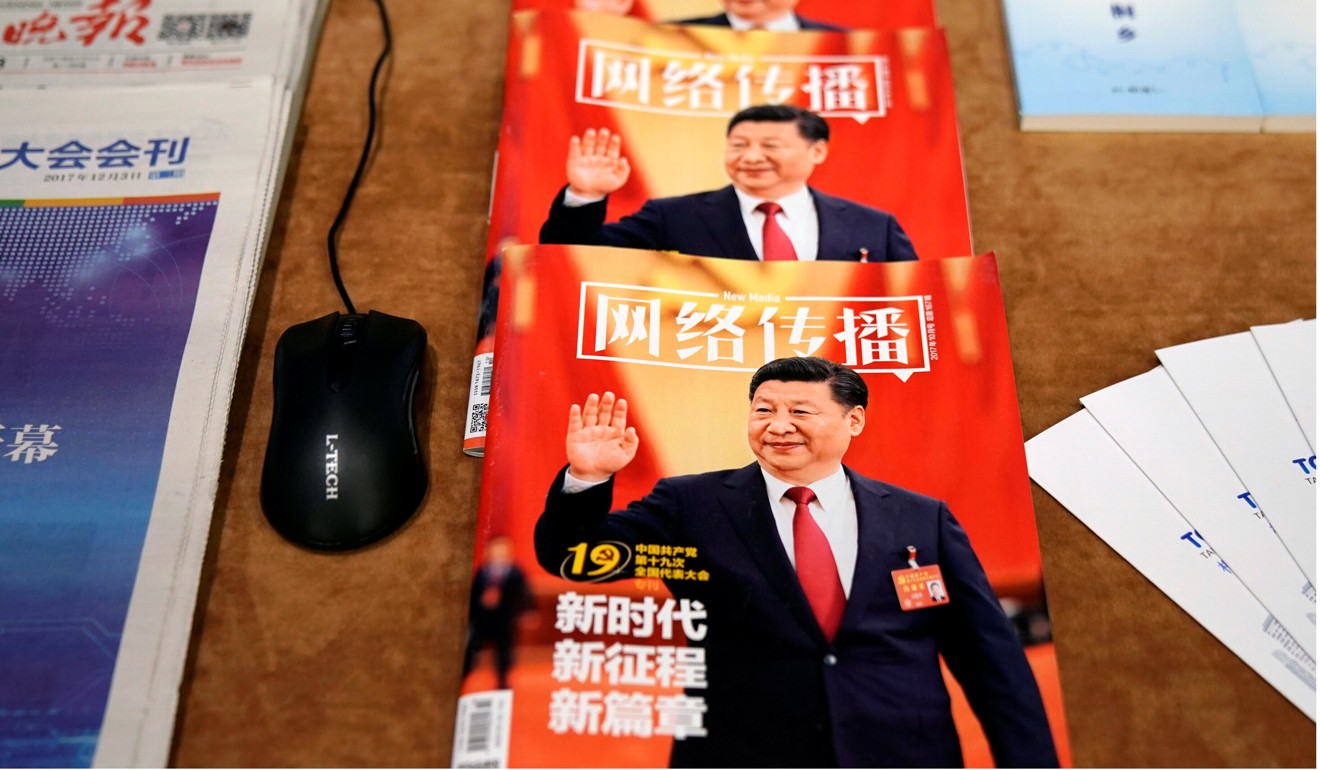Watching US technology leaders try to curry favour at China’s premier internet conference is instructive of the quickly shifting power dynamics among global tech giants. China is the only major market where Silicon Valley’s greatest companies have yet to gain a foothold. Famous for their “take no prisoners” aggressiveness and willingness to break the rules, the leaders of these companies on this occasion, in Wuzhen, Zhejiang, displayed modesty and submission to authority.
At the back of everyone’s mind must be Uber, which, despite its first-mover advantage, was forced to beat a retreat last year after losing billions trying to establish its business in China.
California’s Silicon Valley has long been home to libertarian technologists, who place their faith in the ability of unfettered innovation to solve real human and business problems. Largely free from government regulation, these brainy optimists have developed ideas that have radically changed the way people work, communicate, shop and learn. In the process, they have disrupted – or eliminated – countless companies that relied on traditional approaches to providing goods and services.
Today, the most prominent examples of Silicon success stories are the vaunted “FAANG” stocks, an acronym for Facebook, Apple, Amazon, Netflix and Google. Individually, each of these companies dominates its market segment in the United States and in most international markets.

A scene from the Netflix TV series, Glow. Facebook, Apple, Amazon, Netflix and Google, collectively known by the acronym “FAANG”, are the most popular tech stocks in the market. Individually, each dominates its market segment in the US and in most international markets. Photo: Netflix via AP
For example, Facebook is the world’s largest social media company with over two billion active users. Together with Google, the two giants account for 84 per cent of global digital advertising spending. Amazon has 44 per cent of e-commerce sales in the US. Altogether, “FAANG” has a market capitalisation in excess of US$2.5 trillion, which surpasses that of France, the world’s seventh-largest economy.
It would appear that most Chinese value social stability more than consumer choice
Given the compelling value proposition offered by their services, these new-economy companies have developed large and reliable user bases of individuals, businesses, schools and even governments.
On the back of their tremendous success, these companies have grown so large that their power and influence is unassailable, even by the government in some respects. More than just a challenge to traditional businesses, new-economy companies are a major social force, with the power to affect political outcomes, personal careers, and even the general mood of society. Armed with reams of our personal data and sophisticated algorithms, they alone determine what information we consume, the prices we pay for products and if we are even allowed to participate in certain online activities.
At the moment, there is little consensus in the US on if and how new-economy companies should be regulated. Perhaps counter-intuitively, China may serve as a role model for Western governments as they contemplate oversight of internet companies. Indeed, China was among the first countries to express concern about the potential negative side-effects of the internet.

Chinese magazines featuring President Xi Jinping on the cover are seen during the World Internet Conference in Wuzhen, Zhejiang, on December 3. Photo: Reuters
Much to the consternation of Western observers, China has made a series of controversial moves aimed at taming the internet, including: the creation of a “Great Firewall”, which prevents unfettered access to the web; disallowing anonymous postings and other online activity through real-name authentication; monitoring and restricting the content of internet media companies; and, holding direct and indirect stakes in certain technology companies.
While derided as draconian by critics who value free self-expression, these measures have undoubtedly helped ensure that the Chinese web remains a safer and more orderly space with less content hostile towards individual public figures and subgroups. While the US struggles with issues of ad hominem attacks and fake news, China has developed arguably the world’s most advanced e-commerce and logistics ecosystemFrom the Chinese perspective, the government’s oversight of cyberspace has helped to create a more healthy and harmonious society, something that is sorely lacking in the US.
A clear negative consequence of China’s strict controls is a lack of choice for consumers. Facebook, Twitter, Google, The New York Times, CNN and other American media are all inaccessible from within the Chinese Great Firewall.
Watch: China blocks Microsoft’s Skype in November this yeaMore recently, WhatsApp, and Microsoft’s LinkedIn have also been blocked. That being said, surveys consistently reveal that Chinese consumers enjoy an enviable amount of options for goods, services and intellectual content important to them. To be sure, Chinese public opinion also consistently shows a high degree of satisfaction with government policies and optimism towards their individual and the nation’s future.
It would appear that most Chinese value social stability more than consumer choice. For the Chinese government, this is at the forefront of their minds as they consider what role, if any, they will allow Silicon Valley’s winners to play in China.
Jesse Friedlander, CFA, is co-founder and chief investment officer of Des Voeux Partners, a multifamily office that manages intergenerational wealth. His areas of interest include macroeconomics, geopolitics, language and culture
Comments: 3